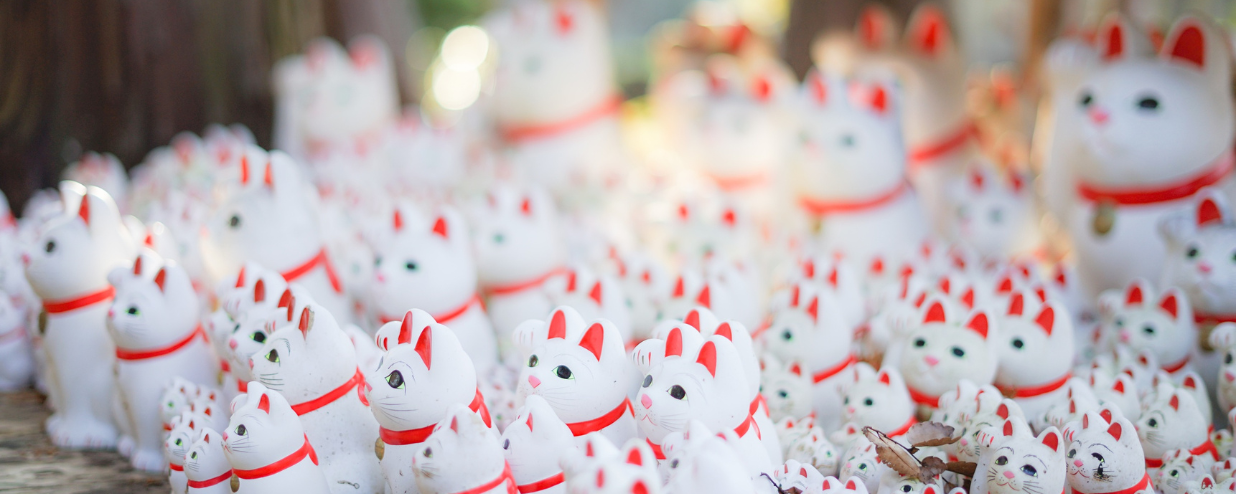Japanese culture is rich with traditions, beliefs, and customs that date back centuries, many of which have been passed down through generations. Among these cultural practices are a variety of superstitions—both quirky and profound—that have shaped the way people in Japan view luck, life, and the supernatural. These superstitions are deeply rooted in history and have their origins in ancient customs, religion, and folklore. While some of them may seem odd to outsiders, they offer a fascinating glimpse into Japanese society and its cultural mindset.
In this article, we will explore some of the most well-known Japanese superstitions and uncover their origins, as well as the cultural significance behind them.
The Significance of Four (四, Shi)
One of the most widely recognized superstitions in Japan is the belief that the number four is unlucky. This is because the Japanese word for four, “shi,” sounds identical to the word for death (死), which is pronounced the same. As a result, many Japanese people avoid using the number four, especially in contexts like hospital rooms, floors in buildings, and even license plates.
This superstition extends beyond just the number itself. For example, gifts in Japan often come in sets of three or five to avoid the number four. Some hospitals, hotels, and office buildings even skip the fourth floor in their numbering systems to prevent any negative associations.
The Owl: A Symbol of Misfortune
In Japan, owls are considered both a symbol of wisdom and a bearer of bad luck. While some people believe owls are auspicious creatures that bring good fortune, others consider them a symbol of misfortune due to their association with death and darkness in ancient folklore.
The origins of this superstition can be traced back to the owl’s nocturnal habits. In many cultures, creatures that are active at night are linked to mystery and the unknown, and owls were thought to have a connection to death in Japan. The belief that owls bring bad luck is most often tied to their appearance before a tragedy, such as illness or accidents. Despite this superstition, owls are also revered in other aspects of Japanese culture, often appearing in decorative art and as symbols of protection.
Bending Your Ears: A Sign of Gossip
Another interesting superstition in Japan involves the idea that if your ears suddenly start to burn or feel hot, it’s a sign that someone is talking about you. This superstition is based on the belief that the body reacts to the emotions of others, and burning ears are considered a sign that someone is gossiping or speaking ill of you. The more intense the burning sensation, the more negative the gossip.

The origins of this superstition are rooted in the belief that spirits or supernatural forces can influence human sensations. In the past, people believed that spirits could use these sensations to communicate, warning you when something was amiss.
The Umbrella Curse: Don’t Stick It Upright!
An unusual but widely observed superstition in Japan is the belief that it is bad luck to stick an umbrella upright. This superstition is rooted in the idea that sticking an umbrella upright symbolizes the death of a loved one. The act is said to invite bad spirits into the home, and as a result, it’s considered a practice best avoided.
The origin of this superstition is believed to stem from ancient customs, where umbrellas were seen as a symbol of death or misfortune in certain cultures. In traditional Japanese beliefs, the act of sticking an umbrella into the ground was often linked to funerary rituals or death-related practices. Therefore, it was seen as something that should be avoided in daily life.
Tapping on Wood: A Remedy for Bad Luck
The superstition of tapping on wood (or “knocking on wood”) to ward off bad luck is not unique to Western cultures; it is also a common practice in Japan. The Japanese version involves tapping the wood of a shrine or a piece of furniture, often while uttering a prayer or a wish. This action is believed to invoke protection or to prevent bad luck from occurring.
The origins of this superstition come from Shinto beliefs, where sacred trees and wooden objects are thought to hold the spirits of the gods. Tapping on wood was seen as a way of calling upon these spirits for help, ensuring that misfortune would not befall the individual.
Don’t Walk Under a Ladder
Like many other cultures, Japan has a superstition about walking under ladders. In Japanese culture, walking beneath a ladder is believed to bring misfortune or invite bad spirits. This superstition stems from the association of ladders with the idea of the triangle, which is seen as a symbol of the holy trinity in some religious traditions. In Shinto, the ladder represents the gap between the physical world and the divine realm, and walking under it is considered disrespectful to the gods.
Additionally, the triangle is often linked with the concept of death and rebirth in many ancient cultures, adding to the negative associations with ladders.
The Number of Times You Clap at Temples and Shrines
When visiting temples or shrines in Japan, it is common to clap in front of the main hall as part of the prayer ritual. However, the number of claps is important. It is generally believed that the proper number of claps is two, not three or more. Clapping more than twice is thought to attract bad spirits or disrupt the flow of spiritual energy. The origin of this belief lies in the Shinto practices, where a specific balance of spiritual energy is maintained during rituals.
Conclusion
Japanese superstitions are deeply interwoven with the country’s history, culture, and religious beliefs. They reflect the Japanese reverence for nature, the spiritual world, and the deep connection between the two. While some superstitions may seem strange to outsiders, they offer insight into the values and customs that have shaped Japanese life for centuries.
Whether it’s avoiding the number four, tapping on wood for good luck, or ensuring that an umbrella isn’t stuck upright, these practices provide a glimpse into the fascinating world of Japanese folklore and how it continues to influence modern life. The enduring presence of these superstitions in Japanese society serves as a reminder of the importance of tradition and belief in shaping cultural identity.











